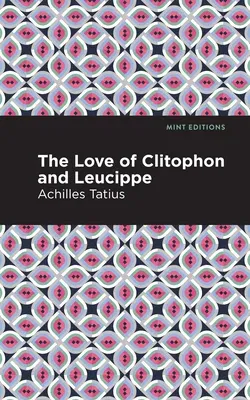The Love of Clitophon and Leucippe is an ancient Greek romance novel
by Achilles Tatius. Considered an important predecessor to the modern
novel, The Love of Clitophon and Leucippe has served as a model for
such writers as Eusthathius Macrembolites and Alonso Nuñez de Reinoso.
The novel remains central to scholarship regarding the tradition of
Greek romance novels written within the vast Roman Empire, and has been
translated into numerous languages throughout the centuries. Of
particular interest is its uncommon usage of first person narration, as
well as its employment of ekphrasis and mythological digressions,
formulas now commonplace, albeit in varying ways, within modern novel
writing. Clitophon is a young man engaged to be married to his
half-sister, Calligone. When his distant cousin Leucippe comes to Tyre
to visit family, however, Clitophon finds himself hopelessly in love
with her. As his wedding day approaches, Clitophon struggles with
whether to commit to his vows or follow his wayward heart. Before he can
decide, however, a man intending to kidnap Leucippe accidentally takes
Calligone to Byzantium instead, where she is forced into marriage with
Kallisthenes, her captor. No longer tied to his vows, Clitophon pursues
Leucippe, with whom he elopes after a period of rejection from her
mother. Sailing from Tyre, they are shipwrecked during a violent storm.
Washing up on the coast of Egypt, Clitophon is rescued while Leucippe is
captured by a group of bandits who resolve to sacrifice the young
maiden. The Love of Clitophon and Leucippe is a story of love at first
sight, of trial and error, and the lengths to which lovers will go to
live with and for one another. With a beautifully designed cover and
professionally typeset manuscript, this edition of Achilles Tatius' The
Love of Clitophon and Leucippe is a classic of ancient Greek literature
reimagined for modern readers.

